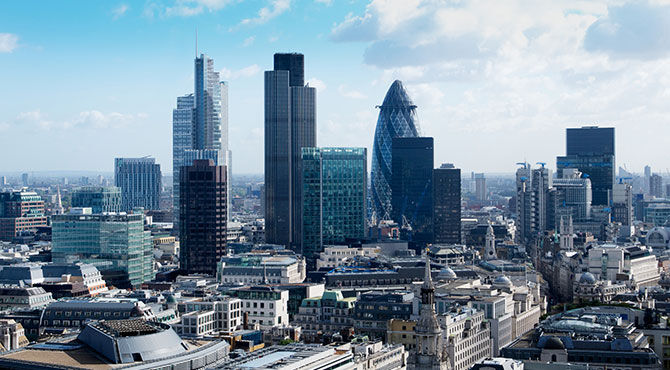Brexit poses ‘colossal’ regulatory challenge for business – CBI
Diverging from European Union regulations after Brexit will make most British businesses less globally competitive, the Confederation of British Industry (CBI) has warned.

 11 April 2018
11 April 2018Aligning with EU regulations
The report, ‘Smooth Operations’, concluded that while a few sectors, such as agriculture, tourism and shipping, might benefit if their activities were free of EU rules, business leaders in 18 of the 23 sectors surveyed said they needed continued, close alignment with EU regulations.“Another important finding is that changes to rules in one sector have significant knock-on effects for companies in other sectors and throughout supply chains,” said the CBI.“Where rules are fundamental to the trade or transport of goods, such as in the automotive, chemicals and life sciences sectors, remaining in lockstep with the EU is essential.“The Brexit deal should set a new international precedent for liberalising trade in services and digital products, the report says. It also outlines opportunities to improve how EU rules are implemented in the UK, such as procurement processes for the defence and construction industries, which would allow the UK to do things differently and better without diverging from EU rules.”Related articles:
- Post-Brexit migration uncertainty ‘set to hit investment’
- UK businesses upbeat about prospects for trade with EU
- Business leaders applaud Brexit transition deal
The report sets out three principles that the CBI wants to see both UK and EU negotiators adopt in Brexit negotiations:Where rules are fundamental to the trade or transport of goods, the UK and EU must negotiate ongoing convergence. The range and type of products available is only set to grow, and the complexity of, and need for, cross-border supply chains will increase. Convergence is essential for frictionless trade in goods in almost every sector. Both sides should find a way of keeping the trade in goods frictionless.In the negotiation of the new relationship, both sides should look to set a new international precedent in the trade of services and digital products. The industries of the future will be cross-border, and alignment globally and regionally will be essential.Alignment will need to come with mechanisms for influence and enforcement that benefit both sides. Cooperation will be vital to ensure that regulatory systems match sufficiently to enable frictionless trade. This is a priority for a majority of industries, particularly those where the EU’s regulations are technical and detailed – such as in energy and financial services – as well on cross-cutting areas like employment rules. There is precedent for this, and both sides must be flexible to meet the other’s legitimate concerns about trust or sovereignty.
Links between business and the government
Carolyn Fairbairn, CBI director-general, commented, “This report comes from the heart of British business. It provides unparalleled evidence to inform good decisions that will protect jobs, investment and living standards across the UK.“The experience of companies across the country will be essential in the months ahead. A major acceleration in the partnership between business and the UK government is needed to make a success of Brexit and to ensure this experience is heard.“It’s vitally important that negotiators understand the complexity of rules and the effects that even the smallest of changes can have. Deviation from rules in one sector will have a knock-on effect on businesses in others, and divergence from rules in one part of a production process will have consequences for market access throughout entire supply chains.“It’s hard to overstate the importance of the decisions that will be taken over the next six months. Put simply, for the majority of businesses, diverging from EU rules and regulations will make them less globally competitive, and so should only be done where the evidence is clear that the benefits outweigh the costs.”Ensuring continuity for the car industry
Coinciding with publication of the report was an interview on BBC Radio Four’s Today programme with Ian Robertson, special adviser to BMW’s board, who said it was vital for carmakers across Europe that there was “seamless flow” of goods across borders after Brexit. He said BMW was already spending money on planning for new bureaucratic and technical requirements once Britain leaves the EU but warned that, while such moves were possible in firms as large as the global carmaker, SMEs did not have the staff or facilities to prepare such changes.On the same programme, Andreas Dombret, and executive board member of the Bundesbank, the German central bank, repeated his warning that the UK’s financial services should be prepared for a “cliff edge” departure from the EU.Mr Dombret, who has previously advocated relocation to new European hubs for London-based banks, said a transition deal, though positive, was not 100 per cent certain and it was correct for a cautious regulator to ensure there was a plan in place should it fail to happen.For related news and features, visit our Brexit section. Find out more about our upcoming Relocate Awards. Relocate’s new Global Mobility Toolkit provides free information, practical advice and support for HR, global mobility managers and global teams operating overseas. Access hundreds of global services and suppliers in our Online Directory
Access hundreds of global services and suppliers in our Online Directory
©2026 Re:locate magazine, published by Profile Locations, Spray Hill, Hastings Road, Lamberhurst, Kent TN3 8JB. All rights reserved. This publication (or any part thereof) may not be reproduced in any form without the prior written permission of Profile Locations. Profile Locations accepts no liability for the accuracy of the contents or any opinions expressed herein.






























